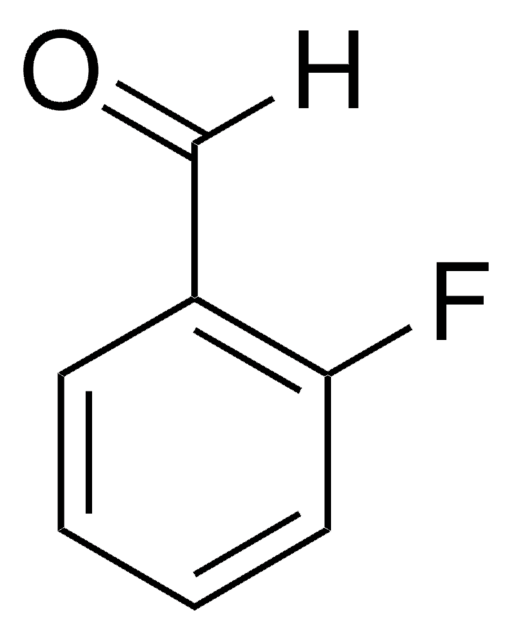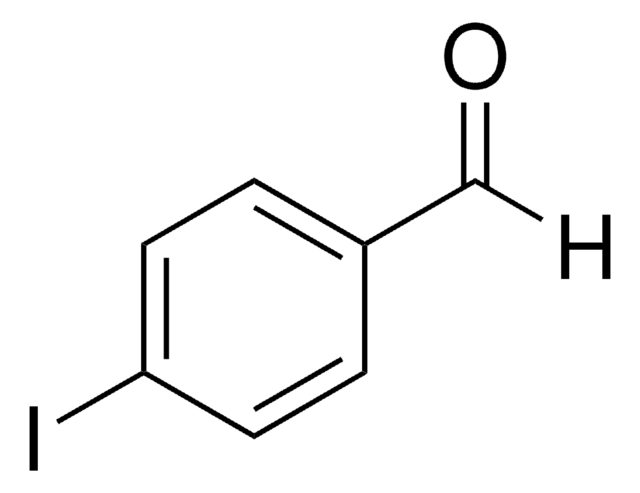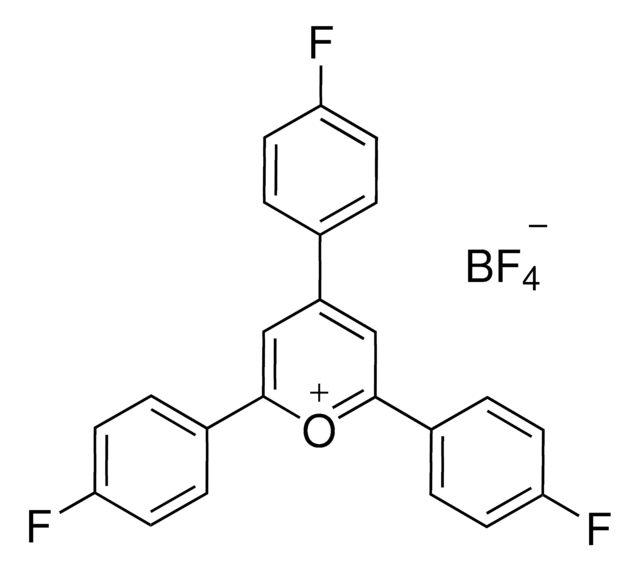128376
4-Fluorobenzaldehyde
98%
Synonym(s):
p-Fluorobenzaldehyde
About This Item
Recommended Products
Quality Level
Assay
98%
form
liquid
refractive index
n20/D 1.521 (lit.)
bp
181 °C/758 mmHg (lit.)
mp
−10 °C (lit.)
density
1.157 g/mL at 25 °C (lit.)
functional group
aldehyde
fluoro
SMILES string
[H]C(=O)c1ccc(F)cc1
InChI
1S/C7H5FO/c8-7-3-1-6(5-9)2-4-7/h1-5H
InChI key
UOQXIWFBQSVDPP-UHFFFAOYSA-N
Looking for similar products? Visit Product Comparison Guide
General description
Application
Signal Word
Warning
Hazard Statements
Precautionary Statements
Hazard Classifications
Acute Tox. 4 Oral - Aquatic Chronic 2 - Eye Irrit. 2 - Flam. Liq. 3
Storage Class Code
3 - Flammable liquids
WGK
WGK 2
Flash Point(F)
132.8 °F - closed cup
Flash Point(C)
56 °C - closed cup
Personal Protective Equipment
Choose from one of the most recent versions:
Certificates of Analysis (COA)
Don't see the Right Version?
If you require a particular version, you can look up a specific certificate by the Lot or Batch number.
Already Own This Product?
Find documentation for the products that you have recently purchased in the Document Library.
Customers Also Viewed
Our team of scientists has experience in all areas of research including Life Science, Material Science, Chemical Synthesis, Chromatography, Analytical and many others.
Contact Technical Service
















